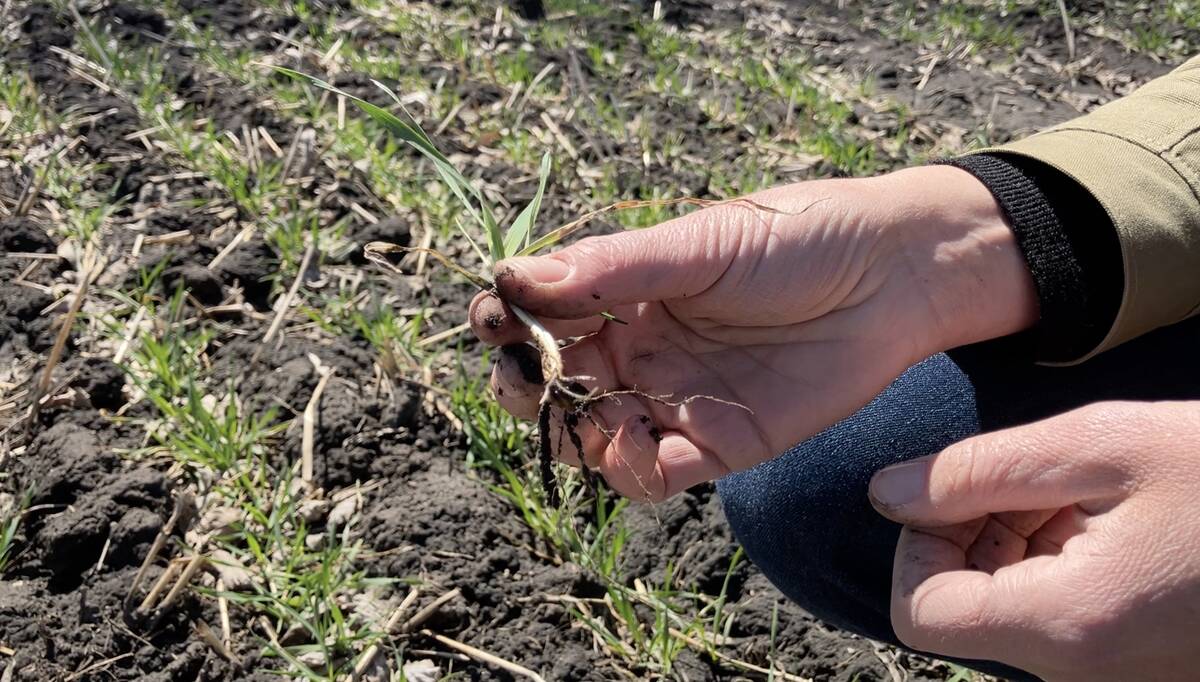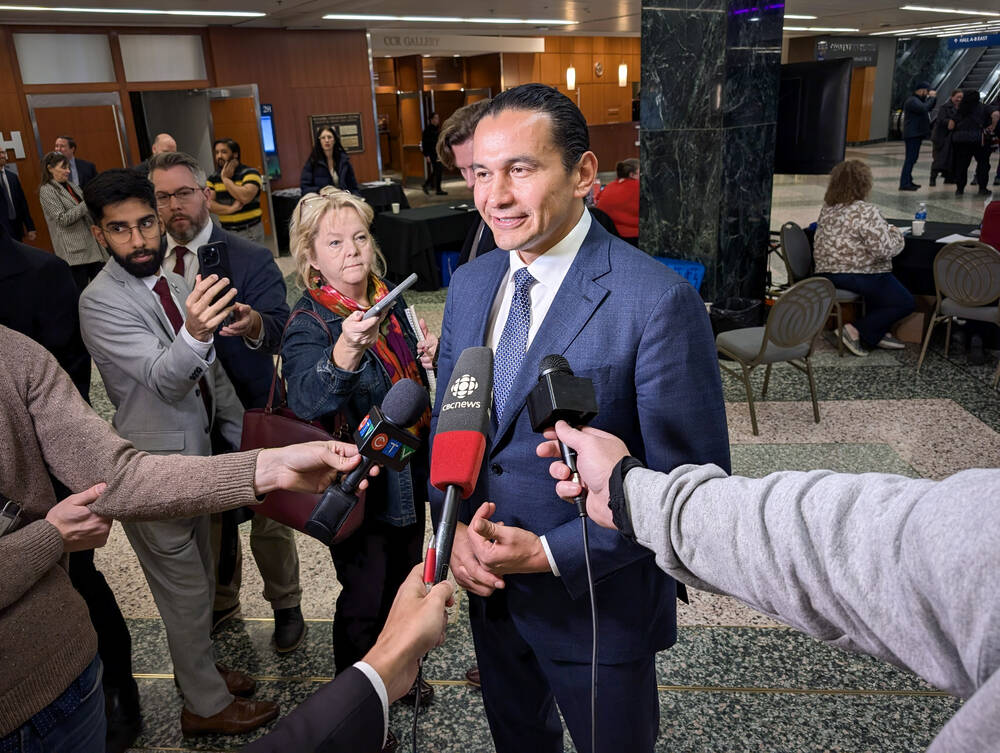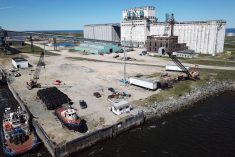The Manitoba Pork Council hopes the province’s trade office in Washington D.C. will help combat a rising tide of protectionist trade issues with the U.S.
“I think that there’s significant value in having an office in D.C. to talk to key senators, to talk to key representatives, as well as the administration,” said general manager Cam Dahl.
Why it matters: The Manitoba government says it expects the trade office will offer inroads with the incoming Trump administration.
Read Also

Manitoba farmers wary of research hit after AAFC cuts
Agriculture and Agri-Food Canada cuts claim Portage la Prairie research farm; Manitoba farms groups wrestle with potential impact.
The Manitoba trade office, to be set up in the U.S. capitol in 2025, was highlighted during Premier Wab Kinew’s Dec. 3 state of the province address. He said the office will provide a direct line of communication with the U.S. government and is part of the province’s wider economic development strategy.
“Manitoba has what America needs,” Kinew said, adding that the office would be “part of how we speak to the incoming Trump administration in their language. We’re focused on boosting productivity, attracting investment and job creation.”
The Canadian Agri-Food Trade Alliance praised the announcement.
“It is always great to see more professionals on the ground advancing Canadian interests in Washington,” said executive director Michael Harvey. “It is of course important to co-ordinate with the Canadian embassy and other provinces, but business is largely a question of relationships, and nothing can compete with personal connections built up over time.”
Branching out
Last year, 48.2 per cent of Manitoba’s agriculture and agri-food exports went to the U.S., making it by far the province’s largest trade destination. China was the province’s second-largest customer for agricultural products at 16.89 per cent.
U.S.-Manitoba agri-food trade has also grown in the past decade. According to a fact sheet published by Manitoba Agriculture, provincial agri-food exports to the U.S. increased by about 6.5 per cent per year in the 10 years from 2013-2023.
Kinew singled out the opportunity to grow relationships with states including Illinois, Minnesota, Georgia, Tennessee and Texas through the new office.
Minnesota, is a key partner for Manitoba pork, Dahl noted, but he would like to see Iowa added to that list. Manitoba ships about two million live pigs to Iowa yearly, Dahl said, and the Manitoba pork sector has strong relations with the Iowa pork sector and the state government.
“That’s a key ally for us … in our desire to keep the border open and the integrated Canadian-U.S. market functioning as it is today,” he said.
Pulling together
Dahl said he welcomes the Manitoba-oriented trade office, but also thinks Canada needs to co-ordinate its ag and food trade messaging in the U.S.
In an editorial earlier this year, he argued that Canada needs a robust agricultural trade strategy, especially with the looming 2026 review of the Canada-U.S. Mexico Agreement.
That would ideally be a nationwide strategy, Dahl said, but at the least, it should cover Western Canada’s interests.
“I would also suggest that we need to co-ordinate with some of the other agriculture export-oriented provinces on outreach to individual states,” he added.
The need for that messaging didn’t start with the recent U.S. election, the pork group notes.
The sector would be hard hit is U.S. President-elect Donald Trump goes ahead with threatened 25 per cent tariffs on Canadian and Mexican goods. Senior Canadian officials have also warned that Trump could prematurely begin the CUSMA review.
Dahl pointed to earlier protectionist irritants. He cited issues like country of origin labelling, which has made a resurgence in recent years after mandatory COOL legislation was struck down in 2015, and Proposition 12, a set of California animal welfare rules that the pork council worries will be detrimental to an integrated cross-border market.
“We’ve seen this growing protectionism happen for some time and, frankly, we need a federal government response to some of these issues as well, and haven’t really been seeing a strategic response to the protectionist issues that are already in the window,” Dahl said.
He flagged three main concerns that he said should be the focus of a co-ordinated trade effort. First there must be action to address existing trade problems like COOL. That effort doesn’t need to wait until Trump is in office, he added.
Second, Canada needs a plan to navigate Trump’s second term and convey “how it is in the national security interest of both of our countries to have a strong, secure trade in agriculture and food in between us.”
Finally, he said Canada needs to prepare a strong agriculture position for the CUSMA review.
“Someone needs to take the lead,” Dahl said. “Again, we’ve been looking for a response, for example, to the country of origin labelling. That’s something that we’ve known has been coming for quite a long time now and we’re really not seeing a strategic response.
“We need to see that leadership, and if it’s not going to come from the federal government, then we need to see provinces like Manitoba take up that leadership role.”
















